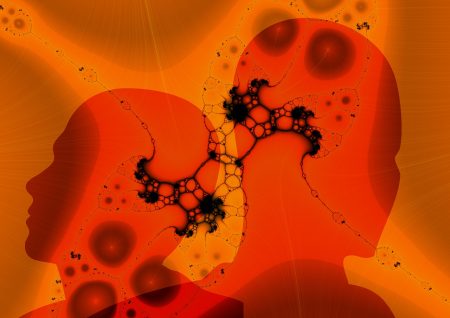Connecting with Your Loved Ones During Opiate Addiction Treatment
There are two main models of opiate addiction treatment: outpatient and inpatient. If you enter outpatient addiction to opiate treatment, you only enter the facility to attend treatment sessions. The rest of your time can be spent connecting with your support system if that is what you need to succeed. But, if you enter inpatient treatment, you have to remain at the facility round-the-clock for the duration of your treatment. If you are used to regular contact with your family, this can be scary.
There is no need to worry. Though you won’t be seeing them daily, you will still have access to your family in inpatient treatment.
Letter Writing
Although it feels a little antiquated, letter writing is the easiest most universally permitted form of communication in addiction to opiate treatment. It will take a little time to figure out what you want to day and how to say it, but the process can be very therapeutic and personal.
Calling or Texting
Smartphones are often prohibited, so this will not be an option in all inpatient opiate addiction treatment programs. However, if you enter a program that allows it, you can communicate daily with your loved ones.
Video Calls
If the rehab has adequate technology, you may have the option of using a web-cam when calling your family. You can battle the loneliness by seeing your family.
Scheduled Visitation
If your rehab allows it, visits may be a possibility. Knowing that you aren’t alone in your recovery efforts can be a true morale boost. You get the reassurance that comes from a physical connection. A hug can do so much.
Keeping in touch in inpatient opiate addiction treatment won’t be a simple as that of outpatient care, but it can be done.
What Is the Link Between Narcissistic Personality Disorder and Opiate Addiction Treatment? Addiction to Opiate Treatment Recklessness
A lot of people are described as narcissists. We reserve the term for people with a large ego and extreme interest in themselves and their needs. However, people with narcissistic personality disorder are much more extreme. They are, of course, vain, but they lack any empathy for others, are manipulative and selfish, and use others to get what they want. They lack any sense of compassion or responsibility. When they fear being rejected or abandoned, they become aggressive or violent.
Because of these strong emotions, many people with narcissistic personality disorder turn to drug use to serve their emotional needs and to give them a place to hide. They get the pleasure and attention they believe they deserve. But, this also leads them down a path that ends in opiate addiction treatment.
What Is the Criteria for Being Diagnosed with Narcissistic Personality Disorder?
The Diagnostic and Statistical Manual of Mental Disorders (DSM–5) is a respected text that defines and classifies mental conditions with the aim of improving diagnoses, treatment, and research. They define narcissistic personality disorder as “a pervasive pattern of grandiosity, need for admiration, and lack of empathy, beginning by early adulthood and present in a variety of contexts.”
What Role Does Narcissism Play in Drug Use?
Narcissists love participating in reckless antisocial behavior. Because of their large sense of entitlement, they don’t think rules and laws apply to them. Therefore, they are attracted to drug use and don’t acknowledge the risks associated with it. This can lead them to be quite unhealthy before they enter addiction to opiate treatment.
They truly believe the drugs are enhancing them and that they have complete and utter control over their use. They may also use their drug use to attract the attention they think they deserve. Plus, it quiets any fear they may have about being rejected.
How Can Addiction to Opiate Treatment Help?
It’s important that the treating opiate abuse program being prepared to treat both the addiction and the personality disorder because they each impact the other. By receiving thorough care, a patient can control the symptoms of both conditions and return to living a stable, healthy life.
The Cycle of the Narcissist Before, During, and After Opiate Addiction Treatment; Understanding Narcissism and Addiction to Opiate Treatment
An opiate addiction is difficult to manage, but an opiate addiction coupled with narcissism is one of the most difficult combinations to deal with. This double whammy of entitlement and selfishness leads to callous, relentless and often abusive behavior. Because they have an elevated sense of self, a narcissistic addict doesn’t believe they have a problem and that they are always right, which makes the job of addiction to opiate treatment nearly impossible.
There are established patterns of behavior that are typical in these cases and the following discussion should help you to understand them better. And this is important because the American Psychological Association indicates levels of subclinical narcissism have been on the rise since the 1970s.
What Is the Cycle?
Technically, there are two cycles: one of addiction and one of narcissism. The two converge and start a new pattern that begins with the narcissist feeling threatened. Growing angry, they take out their vexation on a victim. When the victim resists, the narcissist takes refuge in drug use, which reinforces their perception of omnipotence, idealistic fantasies, and extravagant schemes. But, this drives away anyone who was enabling the drug use, leaving the narcissist’s ego feeling vulnerable and so it continues.
What About Opiate Addiction Treatment?
It will be hard to get a narcissist into any addiction to opiate treatment that is not elite or luxury. And, even in these opiate addiction treatment centers, the narcissist will want special treatment and ignore the rules. They won’t want to engage in much of the treatment, especially group interventions, viewing it as trivial and growing bored. They might be abusive and short tempered with the staff.
Can a Narcissist Even Recover?
It is perfectly possible, but the narcissist has to see the opiate use as damaging to their image. Their ego needs to be threatened by continued use. They may decide to try using again to demonstrate their control over the opiates, so it is important that they continue being positively motivated.


 The Dangers of Living with a Hydrocodone Addiction through the Holidays -
If you’ve ever undergone surgery or suffered an injury, hydrocodone may well have been prescribed as a pain medication. Overall, hydrocodone exists as the most frequently prescribed pain reliever across the globe, according to the Connecticut State website. Hydrocodone also produces certain unintended side effects that account for its use as a highly popular recreational ...
The Dangers of Living with a Hydrocodone Addiction through the Holidays -
If you’ve ever undergone surgery or suffered an injury, hydrocodone may well have been prescribed as a pain medication. Overall, hydrocodone exists as the most frequently prescribed pain reliever across the globe, according to the Connecticut State website. Hydrocodone also produces certain unintended side effects that account for its use as a highly popular recreational ...  Addiction Hurts: How to Forgive Yourself for Your Bad Decisions -
In order to move on from the guilt of your past, you need to first learn how to forgive yourself.
Addiction Hurts: How to Forgive Yourself for Your Bad Decisions -
In order to move on from the guilt of your past, you need to first learn how to forgive yourself.  Oral Opium Use Overdose Symptoms -
The method by which opium is used can sometimes produce different side effects and overdose symptoms. When opium is taken orally, the symptoms of overdose tend to mimic those of a common overdose symptoms associated with many prescription medications and may or may not be life threatening. In the event that overdose symptoms do occur, ...
Oral Opium Use Overdose Symptoms -
The method by which opium is used can sometimes produce different side effects and overdose symptoms. When opium is taken orally, the symptoms of overdose tend to mimic those of a common overdose symptoms associated with many prescription medications and may or may not be life threatening. In the event that overdose symptoms do occur, ...  Opium Addiction: Making it Through the Holidays Alive -
Parties, events and celebrations become more the norm than the exception during the holiday season as friends and family make it a point to spend time together. Television specials, talk shows and the media in general paint a perfect picture of warm feelings and good will for this time of year. Unfortunately, real life seldom ...
Opium Addiction: Making it Through the Holidays Alive -
Parties, events and celebrations become more the norm than the exception during the holiday season as friends and family make it a point to spend time together. Television specials, talk shows and the media in general paint a perfect picture of warm feelings and good will for this time of year. Unfortunately, real life seldom ...  What are Gateway Drugs? -
Commonly known gateway drugs include nicotine, marijuana, and alcohol.
What are Gateway Drugs? -
Commonly known gateway drugs include nicotine, marijuana, and alcohol.